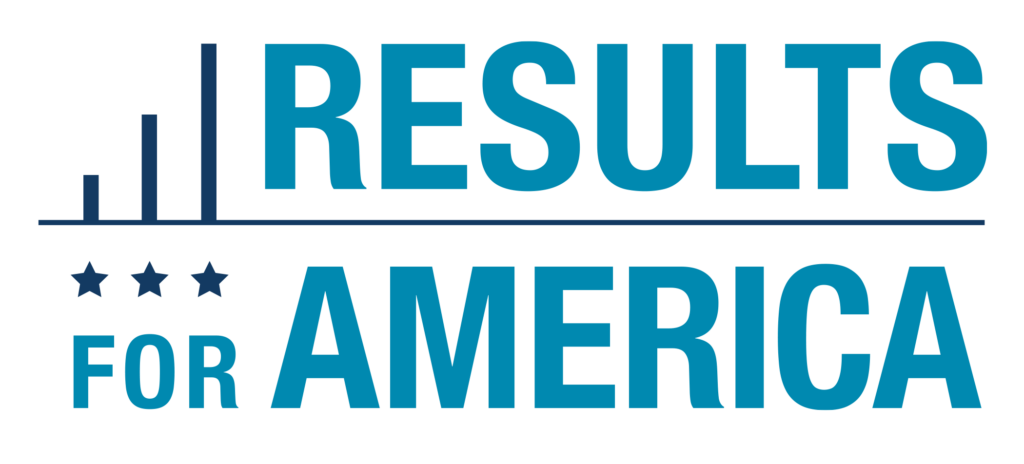DESIGN PRINCIPLES FOR ACADEMIC SUMMER LEARNING PROGRAMS
Voluntary academic summer learning programs are a promising strategy to improve student achievement, but their success depends on careful design and implementation. This brief outlines evidence-based strategies to maximize the impact of these programs, focusing on program structure, personnel, and key factors like attendance and curriculum alignment. Research shows that programs lasting at least five weeks with small class sizes, certified teachers, and enrichment activities yield better academic outcomes. Additionally, strategies such as fostering positive adult-student relationships, offering transportation, and providing meals help maintain high attendance. The brief highlights the importance of early planning, community partnerships, and aligning summer curriculum with school-year standards.
The EdResearch for Action Design Principles Series focuses on a single program or practice that has been proven to have positive effects on student outcomes. Authors – leading experts from across the field of education research – look across many high-quality studies of similar programs to identify the components and conditions that are key to their effective implementation. The Design Principles Series helps practitioners adapt and successfully implement an evidence-based program to meet the needs of their target population.
Jennifer McCombs | Learning Policy Institute
Catherine Augustine | RAND
May 2021 | Brief No. 8
Expand Download ReportDesign Principles Series
At a Glance
Program Structure
Duration: Programs that last at least five weeks and include at least three hours of academic instruction per day have been demonstrated to generate significant and lasting effects on student achievement. Optimally, programs will be offered to students for multiple summers.
Class Size: Small classes capped at 15 students per teacher support stronger individualized instruction and help build relationships in academic and enrichment periods.
Attendance: Attendance is strongest when programs communicate the benefits of high attendance during recruiting, establish an enrollment deadline, and create an engaging site climate with positive adult-student relationships.
Enrichment Activities: Engaging enrichment activities that take place alongside academics can help fill the “opportunity gap” and have been shown to reinforce regular attendance.
Academic Curriculum: High-quality curriculum materials, including lesson plans that align with school-year standards and student needs, maximize the effectiveness of instruction. Summer programs are short in duration and provide little time for teachers to plan their own lessons.
Personnel
Academic Teachers: Certified teachers with content knowledge and grade-level experience enhance instructional quality in academic classes. Specialized support personnel can enhance learning and provide greater continuity across the school year for students with specialized needs.
Enrichment Instructors: Enrichment lessons led by instructors with content expertise are more likely to engage students. Partnerships with community organizations can create opportunity for additional personnel with specific expertise in distinctive enrichment activities.
Administration: In addition to site administrators, large, centralized summer programs require early and comprehensive planning led by a half-time summer program director who can begin working in January, if not earlier
The Evidence Base
Voluntary academic summer learning programs can lead to improved student achievement, but effectiveness is not guaranteed.
The National Academy of Sciences consensus study finds that the content and structure of rigorously studied voluntary programs varied by grade level, duration, content, and curriculum; some demonstrated academic benefits while others did not.
- There is evidence of effectiveness of voluntary academic programs across grade levels.
- There is evidence supporting the effectiveness of both single-subject and multi-subject academic summer learning programs
A systematic review using evidence standards outlined by the Every Student Succeeds Act finds more “promising” rather than “strong” evidence for voluntary academic summer learning programs, although limitations of the evidence-base (e.g., sample size and multiple research site requirements) were noted in the synthesis and conclusions.
A meta-analysis of experimental and quasi-experimental studies found that children who participated in summer programs that included mathematics instruction and enrichment activities had higher mathematics achievement compared to control students.
Program duration, attendance, use of time, and quality of instruction appear to be key factors in programs that show stronger academic benefits.
A systematic review finds that voluntary academic programs that last for three weeks or less have not been effective in producing significant academic benefits.
Much of the most rigorous evidence about voluntary academic summer programs comes from a large multi-district, multi-year study conducted by RAND. Findings include:
- After the first summer, the treatment group (students offered the program) outperformed control group students on fall mathematics assessments; however, the treatment group did not outperform control group students on spring mathematics assessments or reading assessments in the fall or spring.
- The subset of students who attended the summer 2013 program for at least 20 days showed stronger effects, with gains persisting through spring 2014. After two summers of programming, high attenders outperformed the control group in both mathematics and language arts in the fall and on the spring state assessments.
- Productive academic learning time is more predictive of student achievement than the amount of time summer students spend in the classroom. Students who received at least 25 hours of math and 34 hours of language arts productive academic learning time in summer performed better on subsequent state exams. However, many students failed to hit this bar in voluntary summer programs because intended instructional time was easily lost due to late class starts and early dismissals, unproductive time within the classroom, unplanned or lengthy transition time between classes, and poor student attendance.
A meta-analysis of classroom and home summer reading programs finds positive treatment effects for students in summer reading programs that employed research-based reading instruction.
Strong attendance is related to positive outcomes across multiple studies.
Program Structure
Duration
Programs that last at least five weeks and include at least three hours of academic instruction per day have demonstrated significant and lasting effects on student achievement. Optimally, programs will be offered to students for multiple summers..
- Programs operating for three or fewer weeks have not been found to generate measurable academic benefits whereas researchers find lasting effects on students among programs of more than five weeks.
- A longitudinal follow-up study of voluntary summer learning programs offered to students for two summers finds that three school years after the second summer of programming, the academic advantage attenders held over control group students decreased in magnitude but remained large enough to be educationally meaningful
Class Size
Classes with fewer than 15 students per teacher support stronger individualized instruction and help build relationships in academic and enrichment periods.
- Smaller class sizes provide teachers greater ability to work individually with students, build relationships, and differentiate instruction based on student needs.
- Maintaining small class sizes during enrichment programming improves the quality of the enrichment experience and helps instructors manage behaviors and routines.
Attendance
Attendance is strongest when programs communicate the benefits of high attendance during recruiting, establish an enrollment deadline, follow-up with reminders about the program, provide transportation, and create an engaging site climate with positive adult-student relationships.
- While the average daily attendance in the elementary summer learning programs across the RAND study was 75%, there was significant variation by district and site. The site-level average daily attendance ranged from 65% to 92%.
- Several program practices are associated with strong attendance:
- Communicating the expectations and benefits of strong attendance during recruiting
- Establishing an enrollment deadline
- Following-up with reminders about the program
- Creating an engaging site climate with positive adult-student relationships;
- Providing free transportation and meals can reduce barriers to participation, particularly for students from families with low incomes.
Enrichment Activities
Engaging enrichment activities that take place alongside academics can help fill the “opportunity gap” and encourage students to regularly attend the summer program.
- Successful full-day programs tend to include both academics as well as engaging enrichment activities and field trips.
- High-quality enrichment activities have features that are “SAFE” – sequenced, active, focused, and explicit.
Academic Curriculum
- Providing academic teachers aligned curriculum materials (including lesson plans) helps teachers maximize productive academic learning time and teach more content and improves teacher satisfaction with the program.
- Unsurprisingly, teachers who receive hands-on training and practice with curricular materials prior to the start of the program report feeling more prepared to teach the content.
Personnel
Academic Teachers
Certified teachers with strong content knowledge and grade-level experience enhance instructional quality in academic classes. Specialized support personnel can enhance learning and provide greater continuity across the school year for students with specialized needs.
- Teacher quality has the largest school-based impact on student outcomes. Even over the summer, hiring certified academic teachers with strong content knowledge and grade-level experience enhances instructional quality in academic classes.
- For programs serving students with specialized needs such as: English language learners, students with Individualized Education Plans, and students needing behavioral or mental health support, hiring specialized support personnel strengthens the academic support model
Enrichment Instructors
Enrichment lessons led by instructors with content expertise are more likely to engage students. Partnerships with community organizations can create opportunity for additional personnel with specific expertise in distinctive enrichment activities.
In the RAND research study, enrichment instructors with strong content knowledge more frequently demonstrated and modeled skills, corrected student techniques, and built on student strengths than instructors without expertise.
Multiple models of staffing for enrichment can be effective, including:
Hiring district teachers with the enrichment content expertise
- Contracting directly with community-based enrichment providers
Establishing partnerships with community-based intermediaries who then hire local experts
Administration
In addition to site administrators, large, centralized summer programs require early and comprehensive planning from a half-time summer program director who can begin working in January, if not earlier.
- Thorough planning is associated with key programming components. For example, ensuring both that teachers have necessary materials and that transportation runs smoothly from the first day supports teachers’ use of academic time and helps create a positive site climate
Caveats & Considerations
The average daily cost of a summer program is less than the average daily cost of a school day.
- Based on five urban school districts’ summer programs, it costs about $1,400 per attendee to host a five-week, six-hour-per-day summer program that includes small classes of 15 or fewer students taught by certified teachers. The cost estimate includes daily academics, meals, transportation, and enrichment activities.
Hiring staff to achieve desired ratios based on projected daily attendance, rather than staffing based on the number of students who enroll, can reduce costs.
- Even with active recruiting processes, some students will sign up for the program but not attend. In the National Summer Learning Project, in each summer approximately 20 percent of students signed up but did not attend one day.
Consider cost-efficiencies in the design of the program while weighing them against potential impacts on program quality.
- Partner with community-based organizations that have their own funding sources
- Determine the lowest feasible number of summer program sites given the need for small class sizes reasonable transportation times, and positive site climates
- Centralize planning activities
- Continue the summer program over time
- Extend the school-year curricula instead of purchasing a new one for summer
Consider additional effective supports that could be added to summer programming.
- Research on the benefits of high-dosage tutoring for intensive academic support suggests that summer students might also benefit from tutoring relationships in groups of fewer than four students



Funding for this research was provided by the Bill & Melinda Gates Foundation. The findings and conclusions contained within are those of the authors and do not necessarily reflect positions or policies of the foundation.
Related Resources
Design Principles for Accelerating Student Learning with High-Impact Tutoring (updated June 2024)
- Carly D. Robinson | Stanford University
- Matthew A. Kraft | Brown University
- Susanna Loeb | Stanford University
- Beth Schueler | University of Virginia
Educational Practices to Identify And Support Students Experiencing Homelessness
- Alexandra Pavlakis | Southern Methodist University
- J. Kessa Roberts | Utah State University
- Meredith Richards | Southern Methodist University
- Kathryn Hill | Research Alliance for NYC Schools at New York University
- Zitsi Mirakhur | University of Kentucky
Accelerating Student Academic Recovery
- Emily Morton | CALDER at the American Institutes of Research
- Ayesha Hashim | Northwest Evaluation Association (NWEA)
Tier 1 Instructional Strategies To Improve K-4 Reading Comprehension
- James Kim | Harvard University
- Zhongyu Wei | Harvard University
Building High-Quality School Counseling Programs To Ensure Student Success
- Mandy Savitz-Romer | Harvard University
- Tara Nicola | Harvard University
Design Principles for Accelerating Student Learning With High-Impact Tutoring
- Carly D. Robinson | Stanford University
- Matthew A. Kraft | Brown University
- Susanna Loeb | Stanford University
- Beth Schueler | University of Virginia
